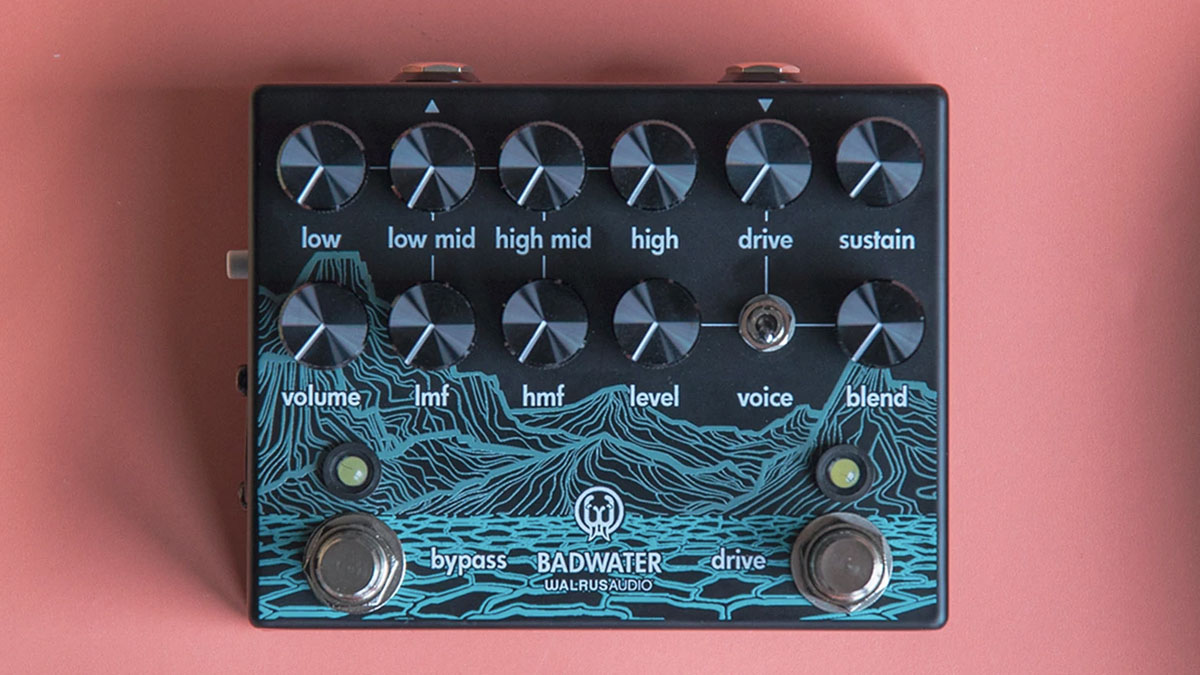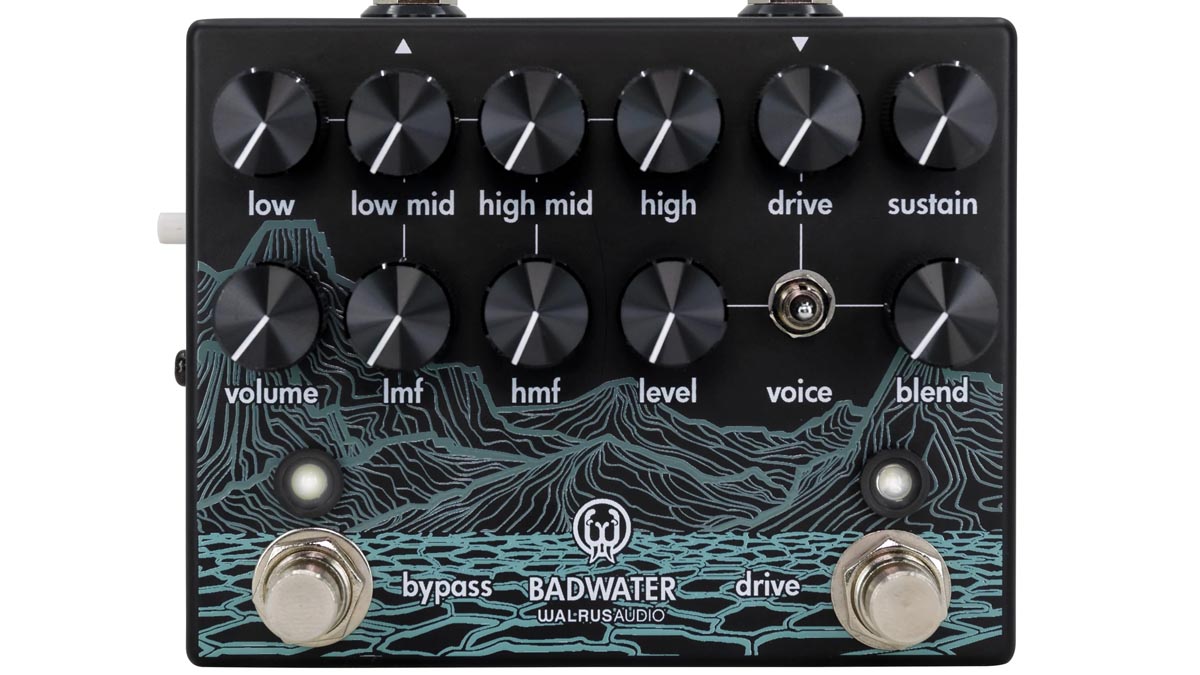Walrus Audio unveils the Badwater, an all-in-one bass preamp and DI pedal with onboard compressor
The Badwater features a three-voice overdrive, four-band EQ, optical compressor and both XLR and 1/4” outputs to give you the option of sending it direct or through an amp

Walrus Audio has launched the Badwater, a preamp and DI pedal for bass, named after the Badwater Basin in Death Valley, California. What else other than the lowest point in the United States to name a pedal that’s all about the low end?
“Like the basin it’s named after, the Badwater holds the foundation for the lowest frequencies and saltiest licks in song creation,” says Walrus Audio. Well, the Badwater certainly serves up a lot of options for low-end adventurists of all persuasions.
Plug your bass guitar into the Badwater and the first circuit it will encounter contains an always-on optical compressor, controlled by a single Sustain dial. Set fully counterclockwise, the compressor is barely there, but as you turn the dial the transients are smoothed over, sustain is enhanced, and the typical tone-gussying magic of the compressor takes hold.

The signal then enters a drive stage of the pedal where you have a three-way toggle switch for selecting your overdrive voicing. This offers a choice of three settings that determine which frequencies enter the drive section.
Like Walrus Audio's Eras and Ages Five-State pedals, there is a Blend control allowing you to dial in how much of overdriven signal you want in the mix. Finally, a Level control sets the overall output from the drive stage.
Thus far, the Badwater has effectively presented us with compressor pedal and an overdrive pedal. Now for the EQ stage. Here we have a four-band EQ offering +/- 12dB of boost or cut on the Low and High frequencies, with +/- 10dB available for Low and High Mids.
The exact frequency of the Low Mid and High Mid dials can be dialled in using the LMF and HMF knobs, with the LMF offering selectable frequencies between 500Hz and 2.4kHz, and the HMF’s sweep ranging from 3.5kHz to 7.5kHz. Finally, there is a Volume dial to round out the enclosure’s controls.
Get the MusicRadar Newsletter
Want all the hottest music and gear news, reviews, deals, features and more, direct to your inbox? Sign up here.
Around the side of the pedal you will find 1/4” and balanced XLR outputs, the latter with ground lift to nix any noise issues when going direct. The former allows you to run the Badwater as a supremely powerful tone-shaper going straight into your bass amp.
Walrus Audio promises all the bass tone food groups are found in its Badwater – “warm cleans, gritty chords, punchy drive, or bright and crisp slap”.
You can also run both outputs simultaneously so your signal is going straight to the PA and to your amp at the same time, which is a handy option to have when playing live. Indeed, the Badwater looks like a handy pedalboard option for bass players, with that blendable, switchable gain surely squaring the circle in finding bass-friendly grit without sacrificing articulation.
The Badwater is available now, asking price is £285 / $299. It takes a 9V DC pedalboard power supply and draws 300mA minimum. See Walrus Audio for more details.
Jonathan Horsley has been writing about guitars and guitar culture since 2005, playing them since 1990, and regularly contributes to MusicRadar, Total Guitar and Guitar World. He uses Jazz III nylon picks, 10s during the week, 9s at the weekend, and shamefully still struggles with rhythm figure one of Van Halen’s Panama.
“A pedal that sings with harmonic richness and blooming touch response”: Tone King offers up boutique tube amp tones for your pedalboard with the Imperial Preamp
“Each and every unit is perfectly dialled in to the 'sweet spot' that can be so elusive to find in vintage pedals”: Pigtronix’s Gas Giant is a high-gain fuzz pedal with a FET-driven onboard noise gate










